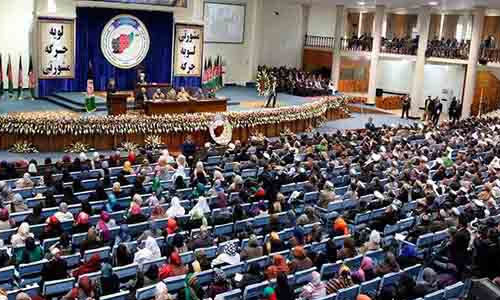The coalition government in Afghanistan has been experiencing problems from the start, inevitably due to the crisis that surfaced up after the presidential elections of 2014. The then secretary of State of the United States launched a political initiative that had no prior record in the history of Afghanistan, however, despite acceptance of U.S. secretary’s offer by the political forces, the National Unity Government (NUG) started its tenure with huge issues ahead of it, the general process of work and decision making did not proceed in a systematic and harmonious way. In the first joint process of the “Electoral reforms”, every leader in the government tried to influence electoral reforms mechanism with their specific frame of thoughts and opinions, on the other hand, same sort of problems was witnessed in distribution of governmental posts.
With the span of time, relations between the leaders of the National Unity Government (NUG) improved, and they advanced on number of issues with mutual understanding. At that time, there were two basic factors for the tensions to exist: First one was related to the general interests of the system and the people of Afghanistan, which was obviously damaged by some controversy in many cases, the second one was personal relationships of the leaders of state and non familiarity with each other’s personal traits.
However, almost five years since the commencement of the National Unity Government (NUG), once again, a protest speech comes from the head of the executive, that is not in tandem with the system and government, and somehow shows dissatisfaction with the decision of the organ. In the recent days, similar kind of convergence and unanimity erupted towards the Taliban on the eve of the Doha summit between politicians and political factions over the basic principles of the “Peace Talks”, but the current statement by the chief executive about “Boycott of the Loya Jirga of the consultative Peace” is of symbolic order.
This will undermine the internal challenges of the current leadership, and weaken the position of Afghan government in the bargaining for peace. Dr. Abdullah’s Kabul consultative Jirga’s boycott shows that there is no political consensus within the national unity government, that is why no agreement has been formed on the list of participants in the forthcoming Qatar Summit.
The meeting was not held until the Supreme Council for Peace, and some influential politicians met at Hamid Karzai’s house and decided that they would not take part in Jirga if the government officials did not attend the Qatar summit. If this happens, the political climate in Afghanistan will get back to old days.
All political efforts of recent weeks in Kabul were focused on a panel of political forces, civil society activists and women’s rights activists to participate in the Qatar summit in a unified and clear manner to represent the entire Republic of Afghanistan, keeping in mind that the Moscow summit in Afghanistan this year has made Afghanistan’s peace policy a bipolar one.
There is a grave need of some genuine political efforts in Kabul to prevent the political differences caused by Qatar meeting. Those who demand prevention of the state order and the republican system in Afghanistan are trying to pave the way for improper and abrupt withdrawal of U.S. forces, and create a situation where political leaders are stranded.
The ongoing situation in the political arena of Afghanistan demands that the political parties, influential community heads, and leaders of the NUG must identify list of the participating members in the Qatar summit. Government leaders should erect their positions on peace consultative jirga as soon as possible, and the leaders of the NUG shall not take such confronting measures, due to which the position of Afghanistan is weakened.
Seemingly Afghanistan’s international allies are not happy with political plundering in Kabul. Mr. Khalilzad and other diplomats from contributing countries have repeatedly said that the national negotiating body should be identified as soon as possible and that political forces should sacrifice their personal interests for keeping the public interest higher, moreover Afghanistan is no longer in a position to tolerate factional confrontations within the government.
While United States is trying to resolve the issues with the Taliban. Cessation of violence and the “Peace Negotiations” for the country’s political future depends on the Afghans themselves. At this stage, all the intangible political forces that are part of the republican order should bring together a national delegation to negotiate in spite of the political, intellectual and other differences.
If the consultative jirga is in the interest of Afghanistan, every political force should attend, the presidency should talk to all presidential candidates, politicians and political forces. A formation of consultative jirga based on the whims and wishes of the current president can bring differences to a level of no return.
Home » Opinion » The Political Crisis amid Loya Jirga and Peace Talks
The Political Crisis amid Loya Jirga and Peace Talks
| M.Karimi

